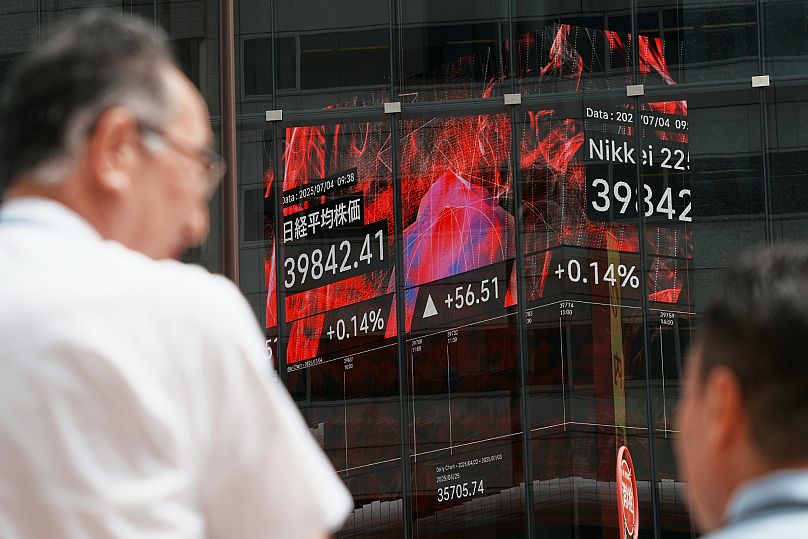US President Donald Trump is expected to begin formally notifying key US trading partners of a sweeping new tariff regime as early as Friday, according to media reports.
The duties, set to take effect on 1 August, could see some countries face levies of up to 70% on exports to the United States.
Speaking to reporters ahead of the Independence Day holiday, Trump said around "10 or 12" letters would be issued immediately, with more to follow over the coming days.
"By the ninth they'll be fully covered," he stated, referring to a 9 July deadline he previously set for reaching deals that could avert the higher tariffs.
Trump's approach, widely seen as part of his America First trade agenda, leaves little room for negotiation.
"They'll range in value from maybe 60 or 70% tariffs to 10 and 20% tariffs," he added, making clear that the scale of the new charges would vary by country.
The United States is currently in sensitive talks with several economies, including South Korea, Indonesia, Switzerland and the European Union. The discussions are understood to be at a critical stage, where delicate issues are being tackled.
The White House first announced the higher "reciprocal" tariffs on 2 April, but delayed full implementation for 90 days to allow time for talks.
In the meantime, a 10% tariff rate was imposed. If the complete list of tariffs takes effect next week, according to Bloomberg Economics, the average tax on U.S. imports might jump to about 20%, significantly higher than the pre-Trump level averaging approximately 3%.
This rise would mark a major intensification compared to the original plan introduced in April, which suggested tariff levels between 10% and 50%. The president hasn’t specified so far which nations or products might be subject to the top-tier rates.
Trump stated that the new measures would commence producing income starting next month. He mentioned, “Nations will begin making payments on August 1st, and funds will flow into the U.S. beginning that same day.”
Although tariffs are technically borne by importers or middlemen, these expenses typically get shifted to end consumers or offset by companies via narrower profit margins.
Local reports indicate that economists have warned about the potential for tariff delays to hinder the Federal Reserve’s ability to control inflation. Certain members of the Fed are said to be reluctant to lower interest rates until the complete economic consequences of these trade actions become more evident.
New tariff announcements have unsettled international markets, leading to falling stock prices across Asia and Europe as well as a weaker U.S. dollar. Trading was halted in American markets on Thursday due to the Independence Day observance.

